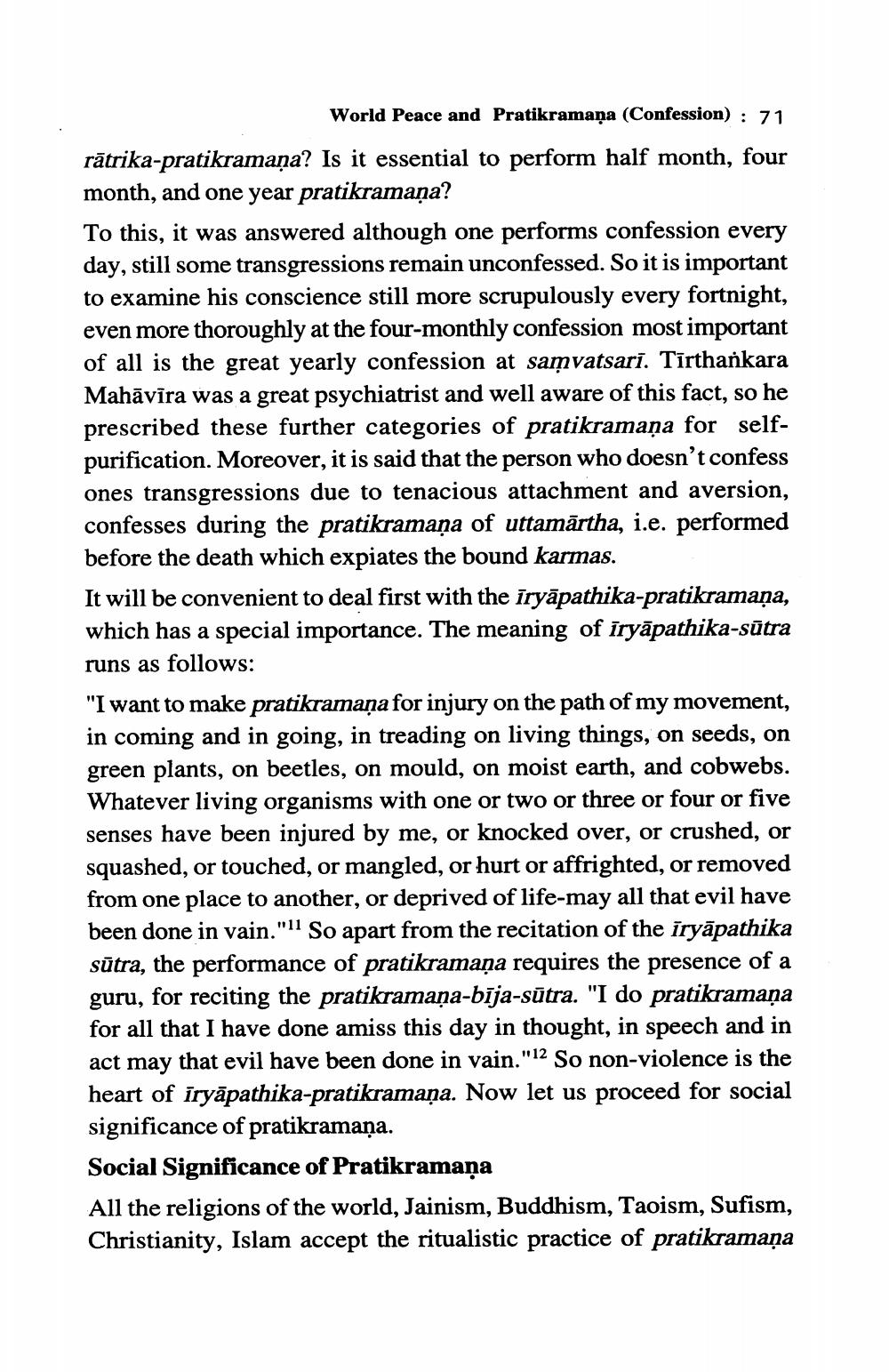________________
World Peace and Pratikramaņa (Confession): 71 rātrika-pratikramaņa? Is it essential to perform half month, four month, and one year pratikramaṇa?
To this, it was answered although one performs confession every day, still some transgressions remain unconfessed. So it is important to examine his conscience still more scrupulously every fortnight, even more thoroughly at the four-monthly confession most important of all is the great yearly confession at samvatsarī. Tīrthankara Mahāvīra was a great psychiatrist and well aware of this fact, so he prescribed these further categories of pratikramaņa for selfpurification. Moreover, it is said that the person who doesn't confess ones transgressions due to tenacious attachment and aversion, confesses during the pratikramaṇa of uttamartha, i.e. performed before the death which expiates the bound karmas.
It will be convenient to deal first with the īryāpathika-pratikramaṇa, which has a special importance. The meaning of īryāpathika-sūtra runs as follows:
"I want to make pratikramana for injury on the path of my movement, in coming and in going, in treading on living things, on seeds, on green plants, on beetles, on mould, on moist earth, and cobwebs. Whatever living organisms with one or two or three or four or five senses have been injured by me, or knocked over, or crushed, or squashed, or touched, or mangled, or hurt or affrighted, or removed from one place to another, or deprived of life-may all that evil have been done in vain." So apart from the recitation of the īryāpathika sūtra, the performance of pratikramana requires the presence of a guru, for reciting the pratikramaṇa-bīja-sūtra. "I do pratikramaṇa for all that I have done amiss this day in thought, in speech and in act may that evil have been done in vain."12 So non-violence is the heart of īryāpathika-pratikramaņa. Now let us proceed for social significance of pratikramana.
Social Significance of Pratikramaṇa
All the religions of the world, Jainism, Buddhism, Taoism, Sufism, Christianity, Islam accept the ritualistic practice of pratikramaṇa




